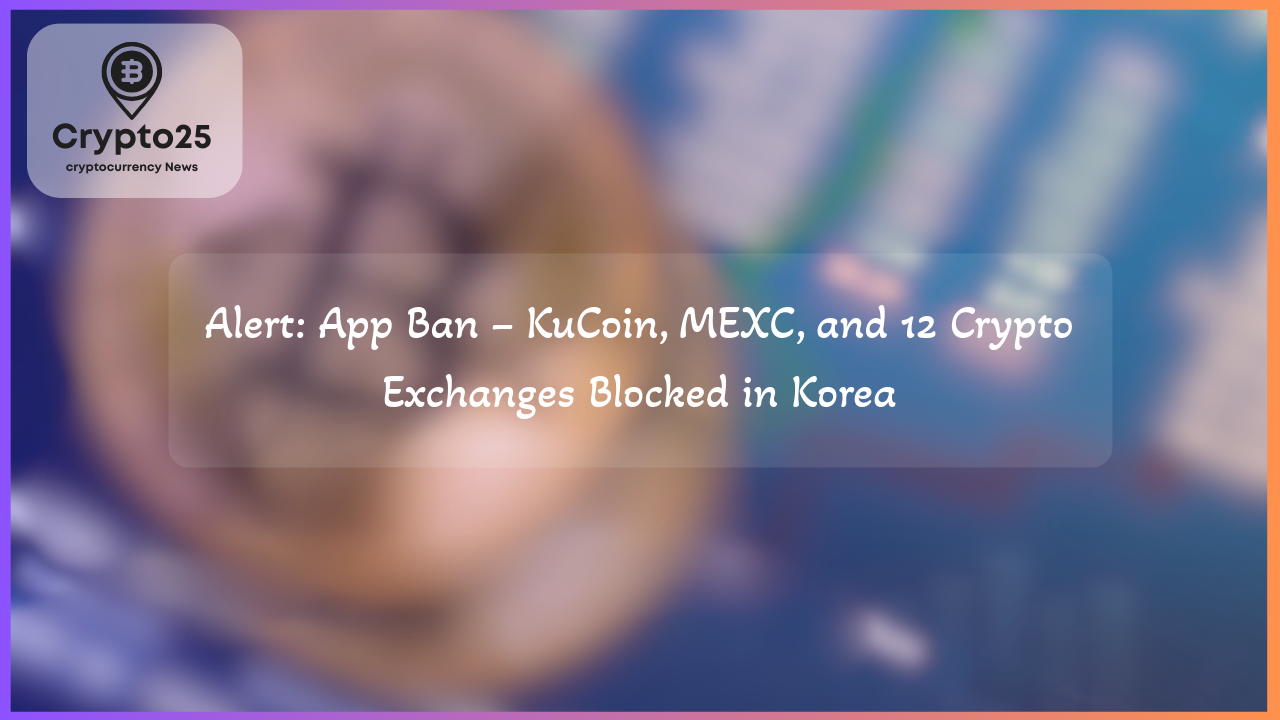
South Korea’s proactive regulatory stance on the crypto industry continues to make waves globally. In a bold move, South Korean authorities have called on Apple to block 14 specific apps tied to unregistered foreign cryptocurrency operators. Among those affected are prominent platforms like KuCoin and MEXC, reflecting the country’s unwavering commitment to boosting compliance and curbing illicit activities in the crypto sector.
## South Korean Regulators Target Unreported Crypto Operators
South Korea’s Financial Intelligence Unit (FIU) has intensified its measures to address the challenges posed by unregistered virtual asset service providers (VASPs). These operators, including big names like KuCoin and MEXC, have faced access restrictions domestically on their mobile apps since April 11. This move underscores the nation’s strict compliance requirements under the Act on Reporting and Use of Specific Financial Transaction Information. The legislation mandates that foreign cryptocurrency companies wanting to conduct business in South Korea file formal reports with the FIU.
Such stringent measures come with significant penalties; unreported business activities are classified as criminal offenses in South Korea. FIU’s statement highlighted its recent actions, which reveal a patterned effort, with 16 unregistered operators being targeted in 2022 alone, followed by an additional six in 2023. The crackdown not only involves blocking access to these platforms via mobile apps but also through their online sites, ensuring domestic users are shielded from potential risks.
## KuCoin and MEXC Among Blocked Crypto Platforms
The inclusion of well-known exchanges like KuCoin and MEXC on South Korea’s regulatory radar is indicative of the government’s no-nonsense approach. Both platforms have amassed millions of users globally but now face restricted operations domestically due to non-compliance with the nation’s legal framework. Efforts to seek comments from the exchanges remain unanswered, leaving the global crypto community keenly observing how these platforms may respond.
By targeting high-profile cases, South Korea aims to send a strong message to the broader crypto ecosystem. Platforms that fail to adhere to reporting procedures risk losing access to a growing and lucrative market. For crypto enthusiasts within the country, the accessibility of these services is being overshadowed by rising concerns over illicit transactions, money laundering, and inadequate user protections facilitated by unregulated players.
| Title | Details |
|---|---|
| Market Cap | $1.2 Trillion |
| Blocked Platforms | KuCoin, MEXC, and 12 others |
| Legislation | Act on Reporting and Use of Specific Financial Transaction Information |
The FIU continues to reiterate its commitment to preventing losses for domestic users while mitigating money laundering risks. Its actions recently extended to requesting technology giants Google and Apple to block a combined total of 31 apps—further reinforcing its message on compliance.
## Future Crypto Regulations in South Korea
Looking forward, South Korea’s regulatory body has assured the public that it will maintain its stringent monitoring process for crypto services operating in the country. Future strategies reportedly include deeper collaboration with tech organizations to identify unregistered operators and ensure a comprehensive crackdown at every stage. By blocking not just mobile applications but also websites, FIU aims to create a holistic infrastructure that safeguards local investors.
The momentum behind South Korea’s current crypto crackdown aligns with global efforts to regulate the rapidly growing digital asset market. As countries like the United States, Japan, and members of the European Union draft similar compliance initiatives, the shared goal is to eliminate potential abuse, improve transparency, and protect users. South Korea, having already set a high standard, will undoubtedly continue playing a pivotal role in shaping the global crypto compliance narrative.
In conclusion, as South Korea tightens its regulatory grip on cryptocurrency operators, platforms interested in expanding their footprint into the region are urged to prioritize legal compliance. Their actions not only serve as a model for other nations but also provide assurance to domestic investors concerned with the risks associated with unregulated crypto activities.
